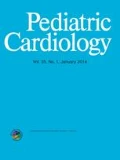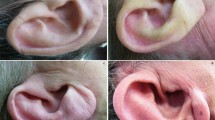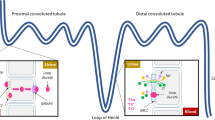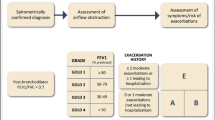Abstract
Accurate grading of the presence and severity of heart failure (HF) signs and symptoms in infants and children remains challenging. It has been 25 years since the Ross classification was first used for this purpose. Since then, several modifications of the system have been used and others proposed. New evidence has shown that in addition to signs and symptoms, data from echocardiography, exercise testing, and biomarkers such as N-terminal pro-brain natriuretic peptide (NT-proBNP) all are useful in stratifying outcomes for children with HF. It also is apparent that grading of signs and symptoms in children is dependent on age because infants manifest HF differently than toddlers and older children. This review culminates in a proposed new age-based Ross classification for HF in children that incorporates the most useful data from the last two decades. Testing of this new system will be important to determine whether an age-stratified scoring system can unify the way communication of HF severity and research on HF in children is performed in the future.
Similar content being viewed by others
References
Aurbach SR, Richmond ME, Lamour JM et al (2010) BNP levels predict outcome in pediatric heart failure patients: post hoc analysis of the pediatric carvedilol trial. Circ Heart Fail 3:606–611
Butler J, Khadim G, Paul KM et al (2004) Selection of patients for heart transplantation in the current era of heart failure therapy. J Am Coll Cardiol 43:787–793
Cohn JN, Levine B, Olivari T et al (1984) Plasma norepinephrine as a guide to prognosis in patients with chronic congestive heart failure. N Engl J Med 311:819–823
Connelly D, Rutkowski M, Auslender M, Artman M (2001) The New York University pediatric heart failure index: a new method of quantifying chronic heart failure severity in children. J Pediatr 138:644–648
Das BB, Taylor AL, Boucek MM, Wolfe RW, Yetman AT (2006) Exercise capacity in pediatric heart transplant candidates: Is there any role for the 14 ml/kg/min guideline? Pediatr Cardiol 27:226–229
Evim MS, Ucar B, Kilic Z, Colak O (2010) The value of serum N-terminal pro-brain natriuretic peptide levels in the differential diagnosis and follow-up of congestive cardiac failure and respiratory distress due to pulmonary aetiologies in infants and children. Cardiol Young 20:495–504
Fernandes FP, Manlhiot C, McCrindle BW, Mertens L, Kantor PF, Friedberg MK (2011) Usefulness of mitral regurgitation as a marker of increased risk for death or cardiac transplantation in idiopathic dilated cardiomyopathy in children. Am J Cardiol 107:1517–1521
Giardini A, Fenton M, Andrews RE, Derrick G, Burch M (2011) Peak oxygen uptake correlates with survival without clinical deterioration in ambulatory children with dilated cardiomyopathy. Circulation 124:1713–1718
Guimaraes GV, d’Avila VM, Camargo PR, Moreira LFP, Luces JRL, Bocchi EA (2008) Prognostic value of cardiopulmonary exercise testing in children with heart failure secondary to idiopathic dilated cardiomyopathy in a non-B-blocker setting. Eur J Heart Fail 10:560–565
Laer S, Mir TS, Behn F et al (2002) Carvedilol therapy in pediatric patients with congestive heart failure: a study investigating clinical and pharmacokinetic parameters. Am Heart J 143:916–922
Lechner E, Gitter R, Mair R et al (2008) Aminoterminal brain natriuretic peptide levels in children and adolescents after Fontan operation correlate with congestive heart failure. Pediatr Cardiol 29:901–905
Patel MS, Berg AM, Vincent RN, Mahle WT (2010) Serum parameters and echocardiographic predictors of death or need for transplant in newborns, children, and young adults with heart failure. Am J Cardiol 105:1798–1801
Ratnasamy C, Kinnamon DD, Lipshultz SE, Rusconi P (2008) Associations between neurohormonal and inflammatory activation and heart failure in children. Am Heart J 155:527–533
Reithmann C, Reber D, Kozlik-Feldmann R et al (1997) A postreceptor defect of adenylyl cyclase in severely failing myocardium from children with congenital heart disease. Eur J Pharm 330:79–86
Ross RD (2001) Grading the graders of congestive heart failure in children. J Pediatr 138:618–620
Ross RD, Daniels SR, Schwartz DC, Hannon DW, Shukla R, Kaplan S (1987) Plasma levels of norepinephrine in infants and children with congestive heart failure. Am J Cardiol 59:911–914
Ross RD, Bollinger RO, Pinsky WW (1992) Grading the severity of congestive heart failure in infants. Pediatr Cardiol 13:72–75
Rusconi PG, Ludwig DA, Ratnasamy C et al (2010) Serial measurements of serum NT-proBNP as markers of left ventricular function and remodeling in children with heart failure. Am Heart J 160:776–783
Saunders M, Gorelick MH (2011) Nelson textbook of pediatrics, 19th edn. Saunders Elsevier, Philadelphia, p 280
Shah A, Feraco AM, Harmon C, Tacy T, Fineman JR, Bernstein HS (2009) Usefulness of various plasma biomarkers for diagnosis of heart failure in children with single ventricle physiology. Am J Cardiol 104:1280–1284
Srisawasdi P, Vanavanan S, Charoenpanichkit C, Kroll MH (2010) The effect of renal dysfunction on BNP, NT-proBNP, and their ratio. Am J Clin Pathol 133:14–23
Sugimoto M, Manabe H, Nakau K et al (2010) The role of N-terminal pro-B type natriuretic peptide in the diagnosis of congestive heart failure in children. Circ J 74:998–1005
Tissieres P, Aggouon Y, Da Cruz E et al (2006) Comparison of heart failure classifications in children undergoing valvular surgery. J Pediatr 149:210–215
Wong DTH, George K, Wilson J et al (2011) Effectiveness of serial increases in amino-terminal pro-B-type natriuretic peptide levels to indicate the need for mechanical circulatory support in children with acute decompensated heart failure. Am J Cardiol 107:573–578
Wu JR, Chang HR, Huang TY, Chiang CH, Chen SS (1996) Reduction in lymphocyte B-adrenergic receptor density in infants and children with heart failure secondary to congenital heart disease. Am J Cardiol 77:170–174
Author information
Authors and Affiliations
Corresponding author
Rights and permissions
About this article
Cite this article
Ross, R.D. The Ross Classification for Heart Failure in Children After 25 Years: A Review and an Age-Stratified Revision. Pediatr Cardiol 33, 1295–1300 (2012). https://doi.org/10.1007/s00246-012-0306-8
Received:
Accepted:
Published:
Issue Date:
DOI: https://doi.org/10.1007/s00246-012-0306-8




